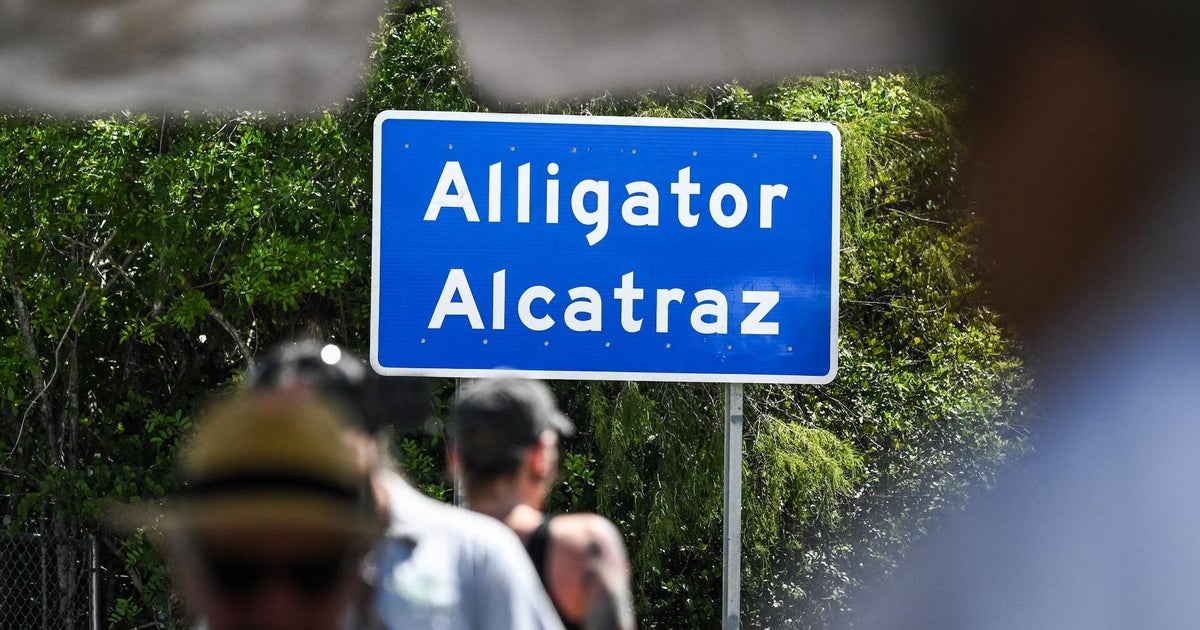In a move that underscores the ongoing complexities and controversies surrounding U.S. immigration enforcement policies, the Department of Homeland Security (DHS) has begun the process of relocating detainees from a highly contentious state-managed immigration detention facility known colloquially as “Alligator Alcatraz.” This facility, situated in the remote expanses of the Florida Everglades, has garnered significant attention and criticism due to its location and conditions. The relocation of detainees follows a federal judge’s decision mandating partial dismantlement of the facility’s infrastructure.
The decision to move the detainees emerges from a broader narrative about the methods and strategies of U.S. immigration control, particularly under the Trump administration’s efforts to increase detention capacities and accelerate deportation processes through collaborations with Republican-led state governments. The facility in question, run by Florida’s state government on a largely disused airstrip in the Everglades, symbolizes one of the more drastic measures taken to facilitate these policies.
The ethos behind “Alligator Alcatraz” was rooted in its potential to serve as a rapid deportation hub. According to Florida’s Division of Emergency Management, the intent was always to make the deportation process more efficient, supporting the President’s broader immigration agenda. This aligns with a statement from DHS that spitefully labeled the judge’s order as the work of an “activist judge,” viewing it as another layer in the obstruction of the administration’s mandate to expel what it terms “the worst of the worst” from American streets.
Yet, this facility was not without its fierce critics. Amidst the escalating operation rates and tougher immigration policies, “Alligator Alcatraz” drew severe criticism from human rights advocates who reported inhumane conditions. Detainees allegedly faced issues such as insufficient access to potable water, poor and unsanitary food, and restricted access to legal counsel—claims fervently denied by federal and state officials.
Compounding the situation were legal challenges and environmental concerns. U.S. District Judge Kathleen Williams intervened by ordering an indefinite halt to any new construction at the facility and prohibited the influx of new detainees. Her ruling also required the swift removal of various infrastructural elements like fencing and light fixtures, reflecting concerns raised by environmental activists regarding the facility’s compliance with federal environmental laws. This judicial pushback signified a notable challenge to the facility’s operations, highlighting the tension between federal directives and judicial oversight.
The legal repercussions continued to unfold as Judge Williams subsequently denied an appeal from the Trump administration and Florida officials to stay her ruling pending further appeal. In her decision, she argued that the appellants failed to present any new evidence proving the detainees housed at “Alligator Alcatraz” posed a unique danger, or that a halt in operations would impede broader immigration enforcement efforts.
Adding to the complex judicial landscape were additional lawsuits challenging the very legality of Florida’s operation of an immigration detention center, alongside allegations regarding breaches of detainees’ rights—particularly relating to legal representation and the opaque jurisdictional oversight of the facility.
Amidst these manifold pressures—legal, environmental, and human rights-oriented—the phased removal of detainees from “Alligator Alcatraz” stands as a stark indicator of the ongoing debates and conflicts surrounding immigration policies in the United States. As detainees are transferred to other facilities, the narrative continues to evolve, reflecting deeper national discussions about the balance between security, humanity, and legality in the context of immigration.
The closing or operational pause of such a facility invites contemplation on the part of policymakers, judicial authorities, and the public about the directions and methods of U.S. immigration enforcement. It raises critical questions about the effectiveness, ethics, and legality of detention as a tool in immigration policy, amidst broader national and global conversations about migration, borders, and human rights. As these discussions advance, the story of “Alligator Alcatraz” serves as a compelling chapter in the ongoing saga of American immigration policy, embodying the tensions and challenges inherent in balancing diverse and often conflicting societal, political, and humanitarian priorities.









